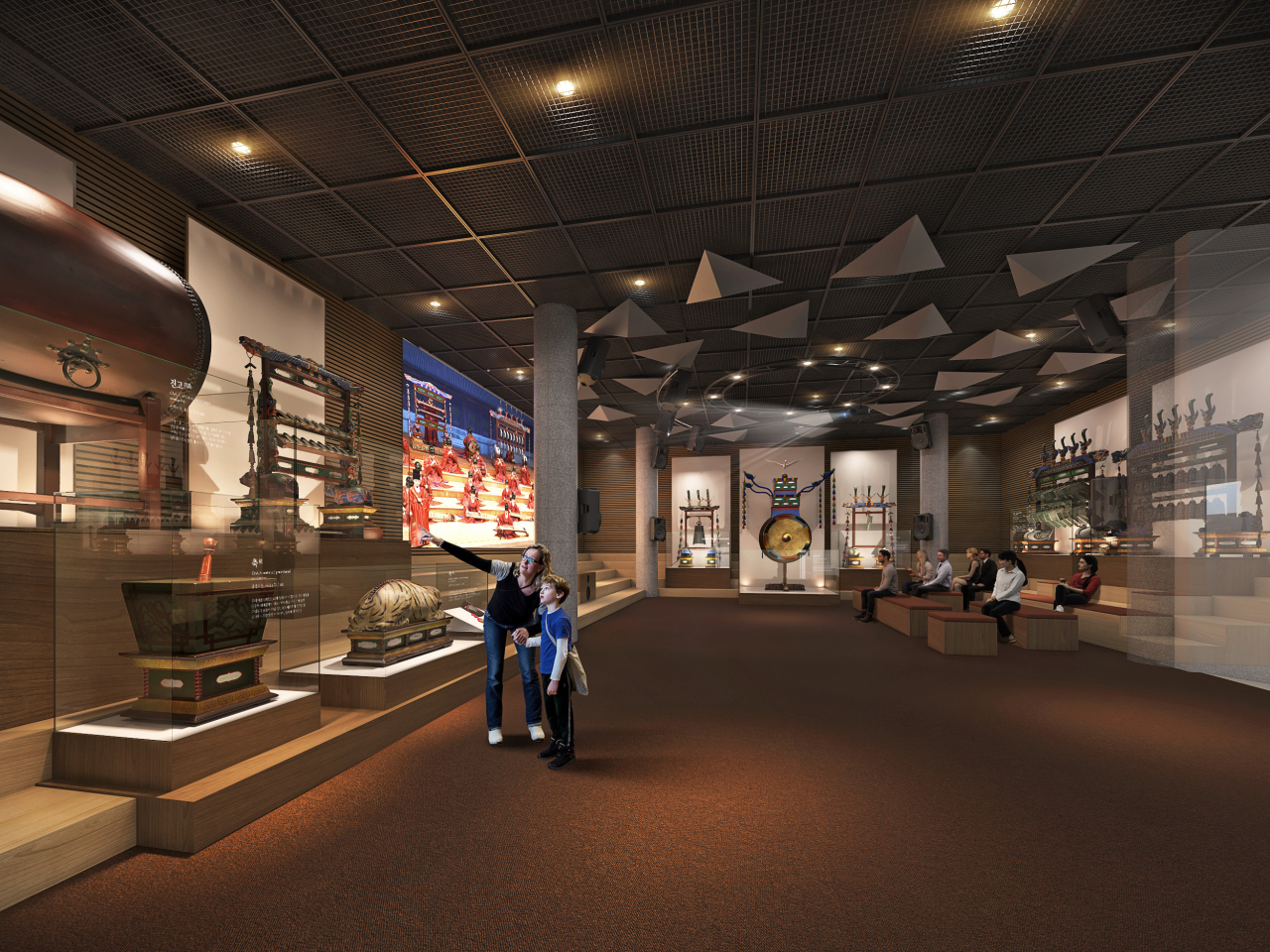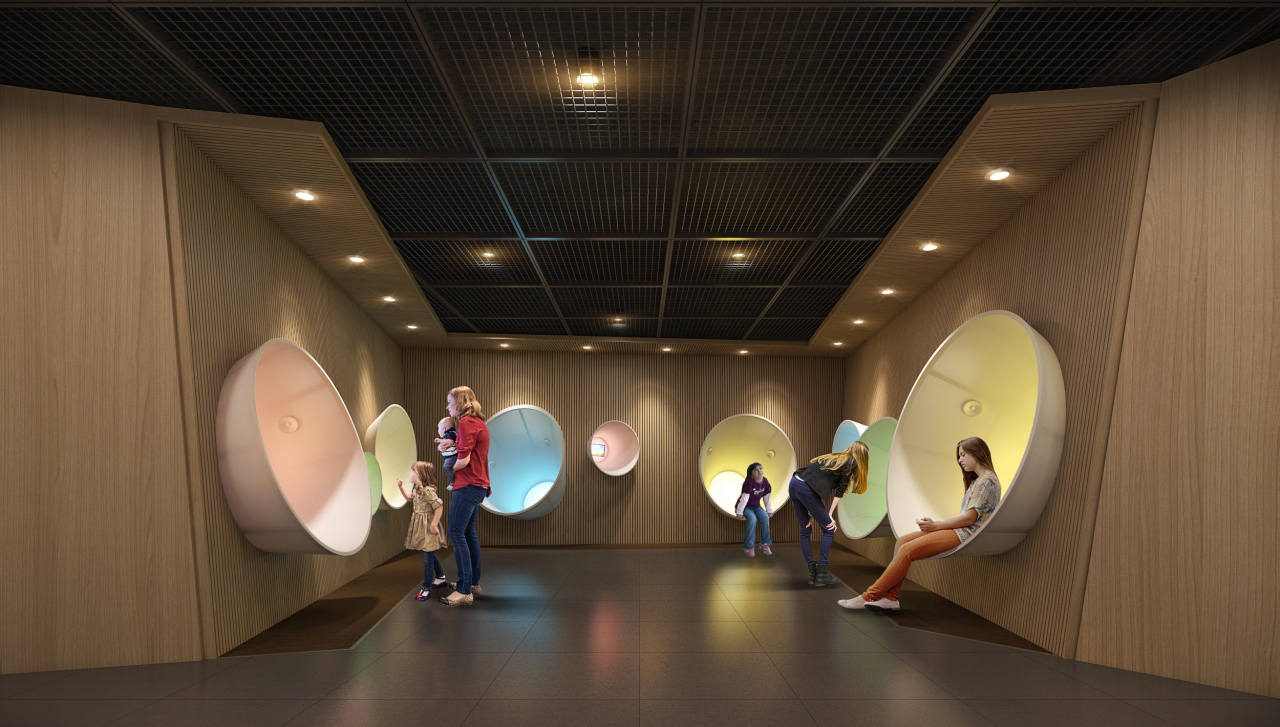Gugak Museum, South Korea’s only museum dedicated to traditional music gugak, reopens today after a yearlong renovation, offering interactive, high-tech and hands-on exhibits.
First opened in 1995 under the auspices of the National Gugak Center, the museum, located in Yangjae-dong, southern Seoul, has been a treasure trove of Korean music and instruments.
The remodeling has enhanced visitors’ experience with cutting-edge audio and music-making installations, officials said.
 |
Traditional instruments are displayed at Gugak Museum. (National Gugak Center) |
 |
Gugak Museum features interactive installations for children to listen to authentic sounds of nature. (National Gugak Center) |
“Rather than focusing on visual displays, we wanted to create a 3D exhibition with hands-on experiences,” Kim Hee-sun, head of music research at the National Gugak Center, said during a press event at the museum in Seochodong, Seoul, Monday.
“Besides being the only museum dedicated to gugak, it is also the only national museum for music in Korea,” she added.
Located on the premises of the gugak center, the museum has a new permanent exhibition that introduces visitors to the world of gugak through three elements -- instruments, scores and performers. Across its seven exhibition halls, traditional instruments, music scores and artefacts belonging to celebrated gugak artists are displayed.
At the main hall, where large-sized instruments are displayed, music listening sessions will take place three times a day, at 10 a.m., 2 p.m. and 4 p.m. Each session lasts for about 15 minutes. The sound system plays back up to 13.1 channels, and the video system features 4K Ultra High Definition.
The museum also offers children opportunities to listen to authentic sounds of nature and instruments through interactive installations.
The gugak center plans to add more features to the museum, such as a music library, and will also prepare temporary exhibitions, Kim said.
“As this is a building that had not been planned to be used as a museum, there are certain limits. It was originally an institution for education,” she said. “But we tried our best to give the Gugak Museum an identity, planning out a space that will be meaningful in the future, too.”
The museum is open every day from 10 a.m. to 6 p.m., except Mondays and Jan. 1. For more information, visit the National Gugak Center’s website at www.gugak.go.kr. Admission is free.
By Im Eun-byel (
silverstar@heraldcorp.com)








![[Weekender] Korea's traditional sauce culture gains global recognition](http://res.heraldm.com/phpwas/restmb_idxmake.php?idx=644&simg=/content/image/2024/11/21/20241121050153_0.jpg)
